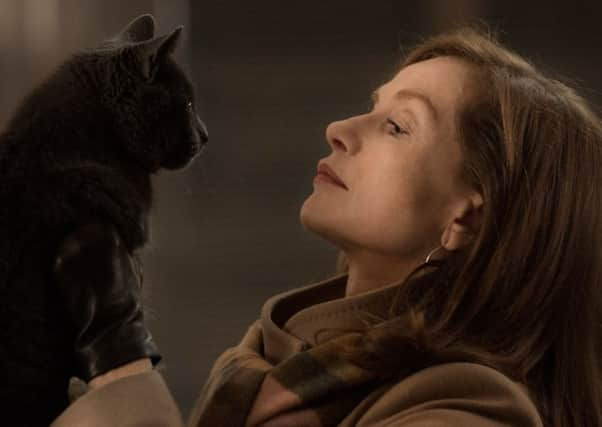Film review: Elle (18)


When the ordeal is over, Huppert’s Michèle doesn’t cower and cry or call the police. She calmly cleans up, locks the door and takes a bath. She refuses to yield to expected notions of victimhood.
It’s this response that makes Paul Verhoeven’s first film in a decade such a provocative, brain-twisting proposition. The Dutch director made his name with slyly satirical genre fare such as Robocop, Starship Troopers and Basic Instinct. Elle is a more grounded film, but because its protagonist’s response to her ordeal doesn’t conform to the narrative beats of a movie about rape, it’s often as funny as it is shocking. When Michèle tells her friends about the attack, for instance, she does so casually, over dinner, just as champagne is delivered to the table. Huppert delivers her lines with deadpan comic flair. Verhoeven maintains this tone throughout and doesn’t give much away in terms of what he wants us to feel. It’s Huppert who deserves most credit for Elle’s success as a film. Inscrutable and unpredictable, her nuanced performance transforms Elle into a remarkable character study of someone unwilling to be defined by anyone or anything.
In selected cinemas.